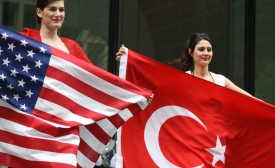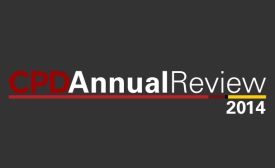turkey
An exhibition revealing Turkey’s history as a refuge for those seeking shelter from conflict and oppression has been opened at the UN office in Geneva, after being shown previously in the United States and Canada.
After months of negotiations and reviews, Turkey and the U.S. have signed a train-and-equip agreement aimed at bolstering moderate Syrian opposition fighters. This agreement is likely to have diplomatic outcomes between the two NATO allies and provide answers to many questions currently in the air, however, if we analyze the situation objectively, the “train-equip agreement” is going to make very little change in the civil war situation – if any.

The intersection of public diplomacy, people-to-people communication and international trust building is explored in this new article by Kirsten Mogensen, an associate professor at Roskilde University in Denmark and an alumna of the CPD Summer Institute.
The 2014 CPD Annual Review demonstrates that although public diplomacy is present in every region of the world, it is predominantly in the northern hemisphere. North America is ranked the most active region in public diplomacy, with the United States contributing the most. Asia (Asia Pacific, Southeast Asia and Central Asia combined) comes in second, and Europe is third, with almost the same presence as Asia. As expected, China, Japan, and South Korea take the lead as the major actors in Asia Pacific. India is also very active in PD in South Asia.
As part of the CPD Annual Review process, in January we highlighted some of the year’s key public diplomacy moments in our Top 10 List of the most notable stories from 2014.
Launched in 2013, the CPD Annual Review was developed to serve as a guide to understanding the global landscape of public diplomacy, its ebbs and flows, its triumphs and its shortcomings.

Capturing the scope and scale of PD around the world through an analysis of English-language news stories from 2014.
A state-sponsored program to build mosques in countries from Kazakhstan to Cuba has emerged as a foreign policy instrument for Turkey, boosting the country’s claim to a place on the international stage as a leader of the Islamic world that looks after Muslims everywhere.







